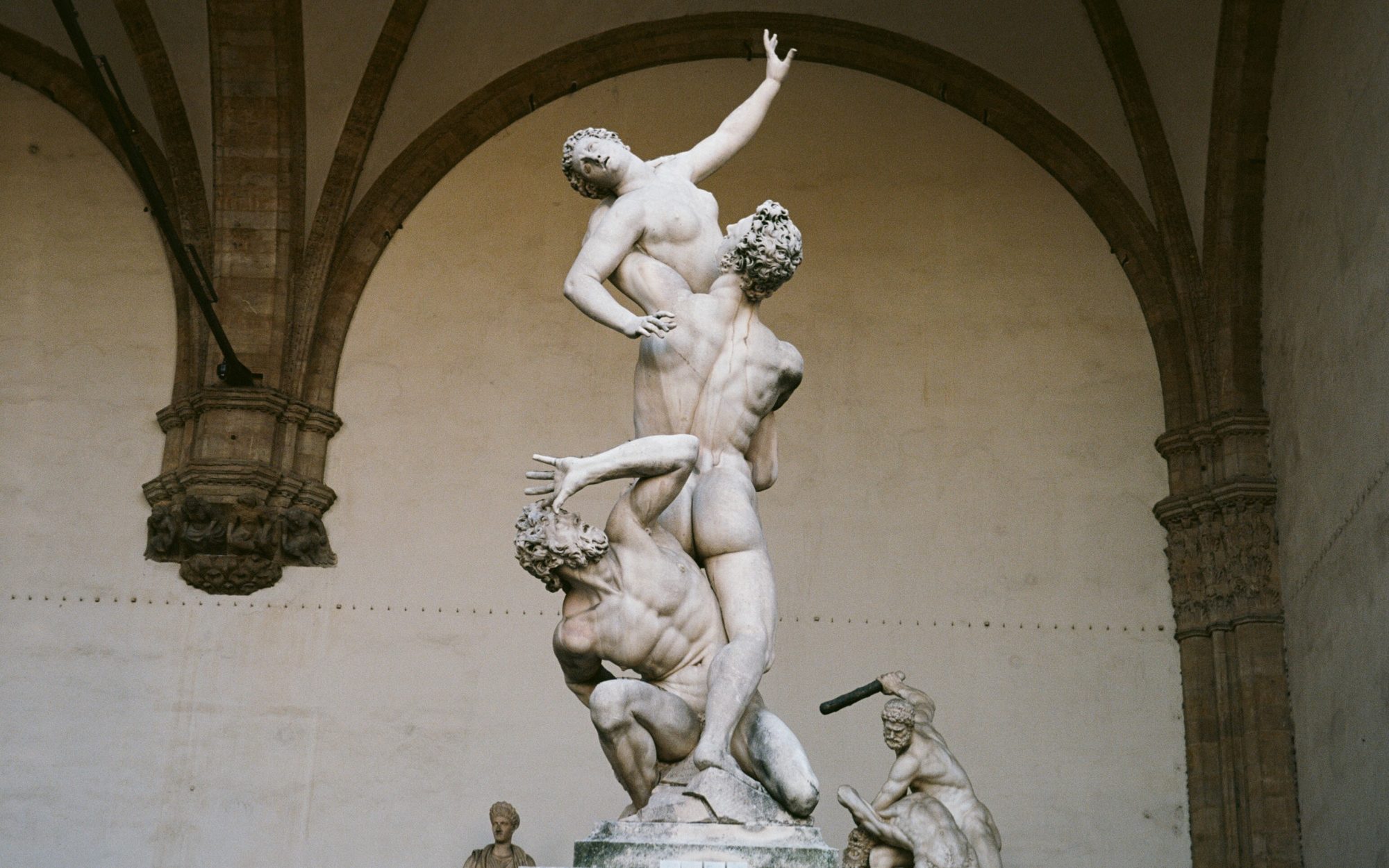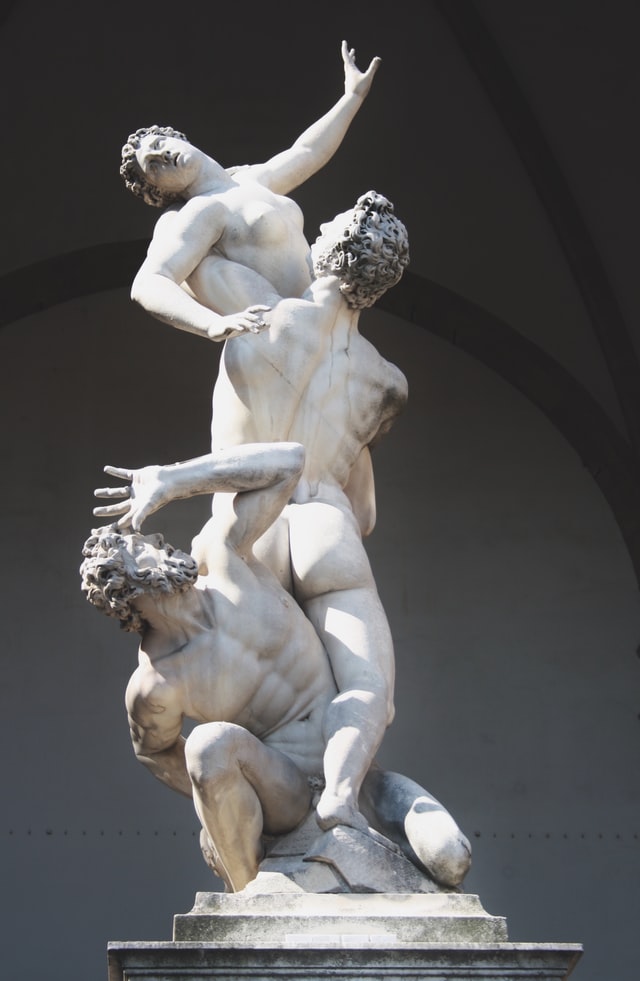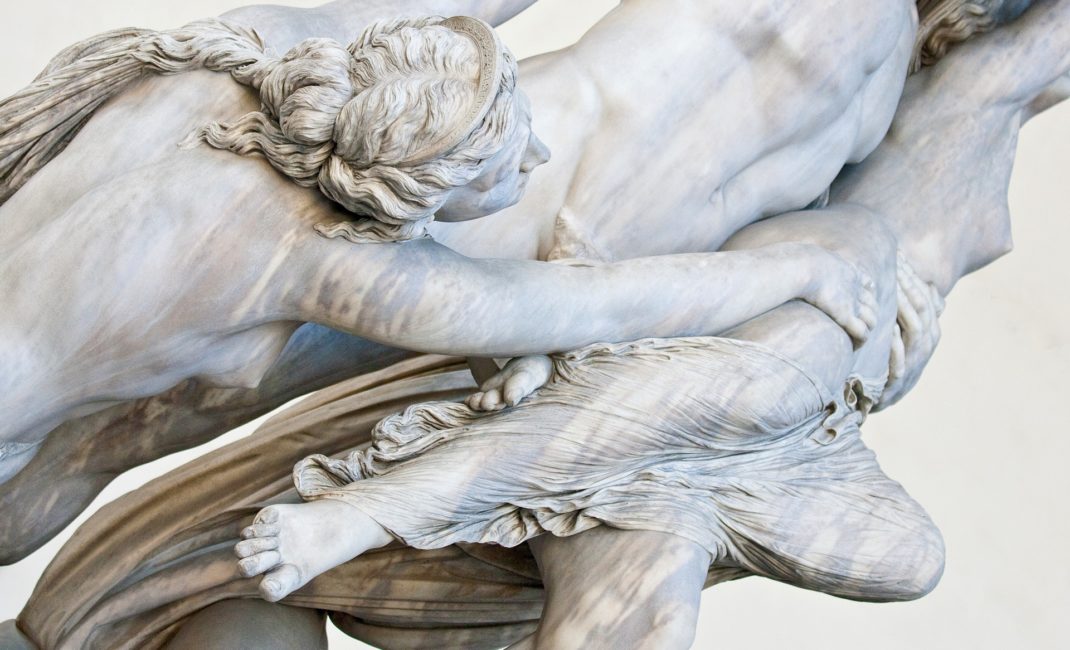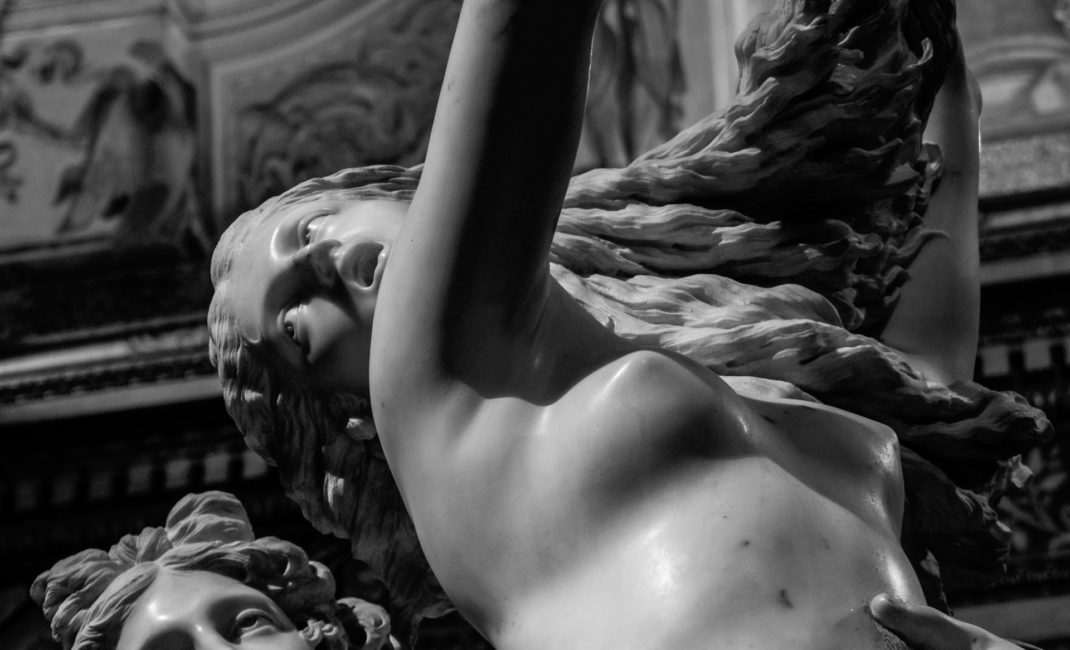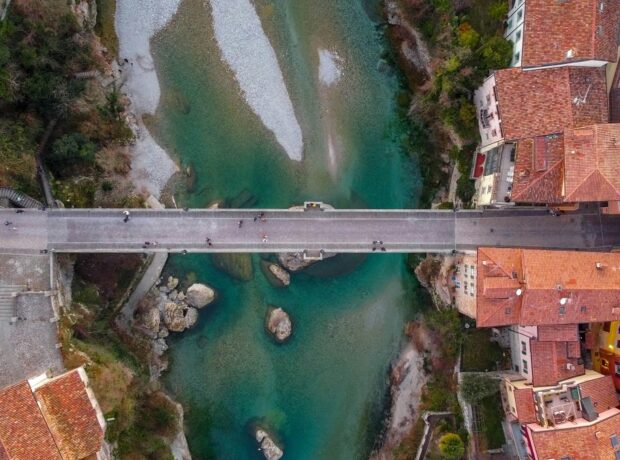In this moving and delicately-rendered fictional story, a woman stumbles upon a statue in Florence that leads her to rediscover her own memories of a sexual assault. With the help of art, she begins, at last, to speak her truth.
This piece of creative fiction was originally written as a response to one of the themes of the Writing Human Rights module at the University of Warwick. The module confronts human rights themes and develops creative responses to them in writing. Students have free rein to choose the topic and style of their stories. They have written pieces of journalism, short fictional stories, sci-fi, screenplays, comment pieces, podcast episodes and TED talks. We have worked with students to develop the best examples of their writing and publish them on Lacuna (find them here). Sylvie Shiu’s story is a response to the #MeToo section of the module. Sylvie is a law graduate on the LLB with Year Abroad in English. Her two-year experience in Rome inspired her to write this story. She is now taking a barrister course and hopes to continue to advocate for survivors of sexual assault.
Content warning: theme and description of rape and sexual assault.
The glaring sun filled the room. I felt I could only survive in this heat with a tank top. Just as I was taking one out of my suitcase and getting ready to pair it with black shorts, Antonio’s voice interrupted me. “I think you should pair it with long jeans, because we might be entering churches.” I nodded reluctantly.
Despite the blazing heat, of course, he still wanted me to follow his “advice” and cover up as much as I could. Upon seeing my annoyance, he continued. “You know how they are, even though Florence is slightly better than Rome. It’s for your own good, Amore.”
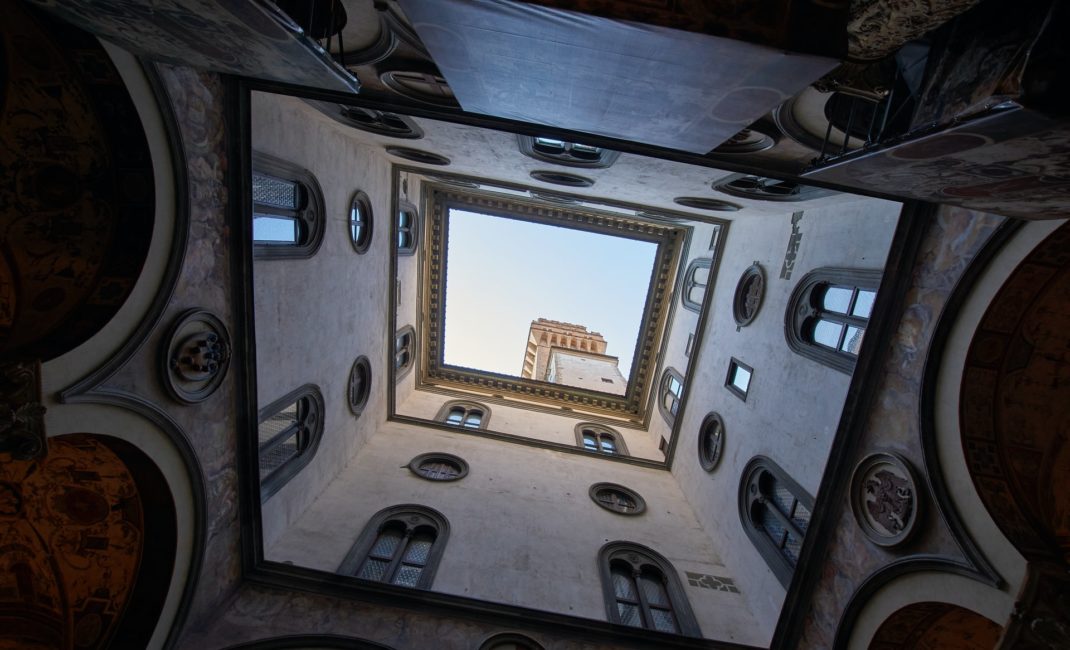
Photo of the Palazzo Vecchio, Piazza della Signoria, by Wolfgang Hasselmann on Unsplash
Growing up in such a culture, I have become used to it, but I am not yet numb to it. Their gaze stays with you the second you are in their frame of vision. They purposely make it obvious that they are watching you, as if the act was a favour, or an appreciation of your sexuality that you have to acknowledge and maybe even be grateful for.
What bothers me the most is that I am indeed grateful to them, for they have only violated me with their eyes and not to a greater extent. But I fear that one of these days, I know I will not be so fortunate.
After an espresso and a croissant at a cafeteria, we went to the gathering place for our guided tour.
There were a few men checking me out, who immediately retracted their signals when they realised that I was with another man. It let me know that they were not capable of respecting a woman, but could only respect one of their own, by agreeing not to touch his property.
Grateful for Antonio’s presence, I reached for his hand. It made me feel a little calmer.
There was only us and one other couple, speaking with German accents, booked onto the tour. The tour guide was an old Italian man from Sicily, probably in his 50s, with a nice smile. He was regretfully apologising to us in Italian, saying that he could only speak English, so the German couple wouldn’t understand. Despite this, the tour went quite smoothly.
When we arrived at last at Ponte Vecchio to take some pictures, I was ready to head to I Fratellini for what were allegedly the best sandwiches in town. But the main road was blocked by an ongoing marathon. The tour guide took us on a detour instead, to Piazza della Signoria.
Nearby, there was this beautiful statue of three people on top of each other: an old man with a painful expression on his face at the bottom, and a youthful and more athletic man in the middle, reaching towards a young girl. As the sun was blinding me, I couldn’t see their facial features clearly, but the whole scene reminded me of love stories where young couples eloped because their families forbade them from being together. The tour guide started explaining,
“Well, you guys are in for a treat. This is the famous statue by a sculptor of the Medici family, Giovanni Bologna, in 1583… ”
As he was explaining, I took out my phone, trying to make out what the sculpture was trying to portray. I zoomed in on the maiden’s face, as if now the responsibility was on her to tell me her story. I realised that, contrary to my first impression, it did not look like she was pleased. Her eyebrows were drawn together, her eyes shrieked in desperation and helplessness, and her mouth was slightly open, as if she was ready to let out a scream but something stopped her.
The young man beneath her was reaching one hand over her back. While being underneath her, he seemed to have more power than her. His other hand was wrapped around her lower body, grabbing her bottom, and his eyes were filled with desire. Despite the cold dead marble the statues were made out of, I knew what this was.
This was not a statue of love.
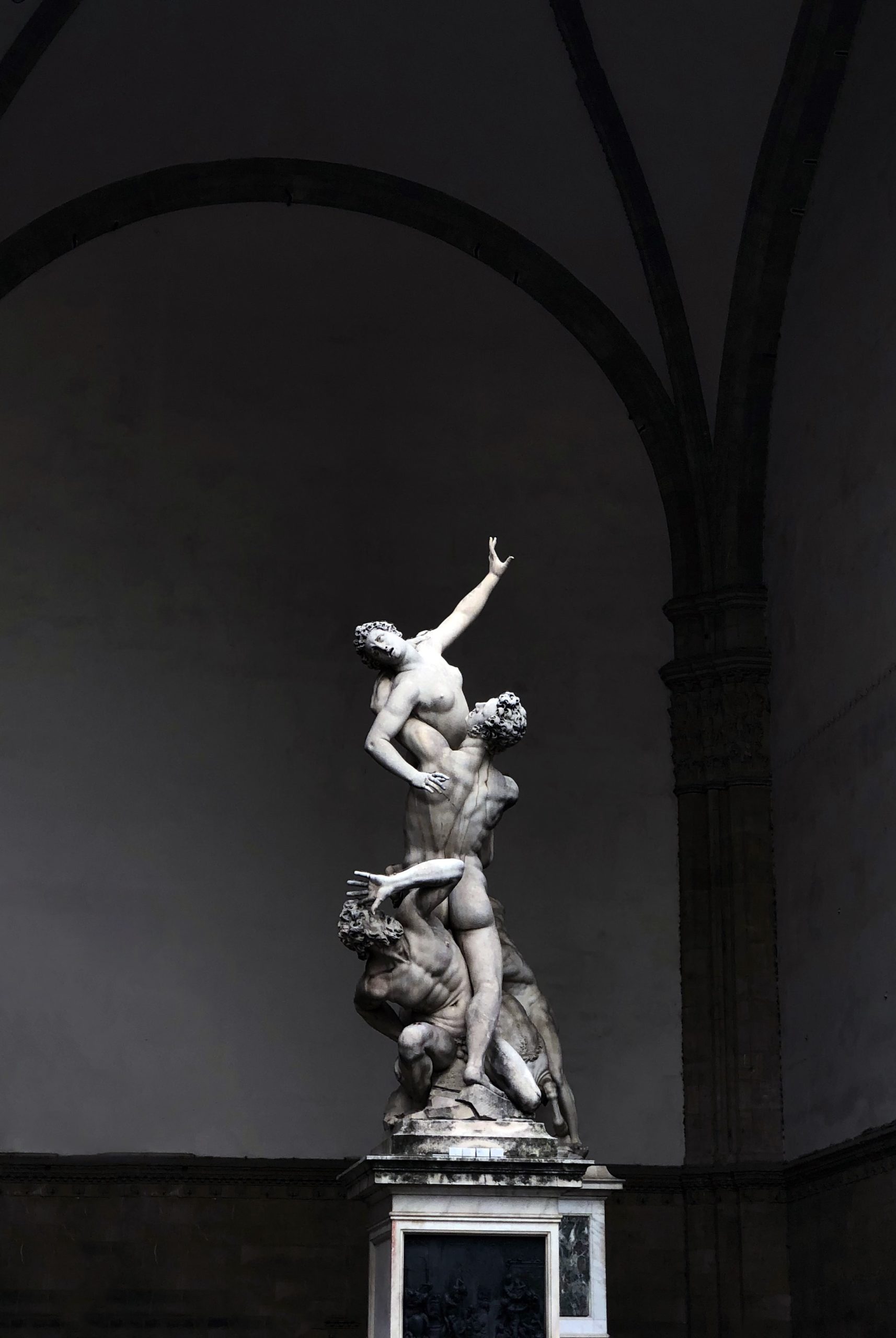
Photo by Jossie Díaz on Unsplash
I could recall seeing that maiden’s facial expression somewhere else, only for a brief second. It was in a bedroom with beautiful wall paintings, but with furniture so old and crumbling that it clashed. The room was lit up by golden fairy lights that changed their patterns of flickering every 10 seconds. I remember that to my right, there had been a window with a half-moon frame at the top. When I tried to look out of it, I couldn’t see anything except my own reflection.
Antonio had been there too. I could hear him now again, mumbling in my ear: “Our friends are outside, let’s not embarrass ourselves.”
I turned my head away, looking at the window, wanting to shout but I couldn’t. This was where I had seen that facial expression. It had been mine. This was surprising to me, as for a long time my main memory of that night was the fairy lights: they were little light bulbs in the shape of hearts, lining the margins of the ceiling. They lit up the room in a soft warm glow. It started with a constant shine mode, and after 10 seconds of this, it dimmed slowly, then grew again. Then it flashed on and off, then back to the initial pattern. These 3 patterns repeated again and again, for 273 times, until the pain was over, and I could breathe again.
That was my first night. I remember vividly that I didn’t want to do it, but I was pressed under his heavy body. There was nowhere I could go. My intoxicated state didn’t help. My drunk friends had locked the door behind me, and I could hear them giggling outside the room. They had thought that they were doing me a favour, and that when I begged them not to push me into the room, I was just being shy. Or playing prude, as a lady does.
After being dragged into the room, I had been pushed onto the single bed. I knew what was going to happen. I stopped shouting and tried to scream. But I couldn’t. I convinced myself that if I don’t say no, that doesn’t count as non-consensual.
In fact, what I was really thinking was: if I do say no, and he doesn’t stop, then that would make him a perpetrator, and me a victim – which I am not, and which I refuse to be.
This person is someone I like, someone I am seeing, someone who treats me very well and someone I eventually want to do this with – maybe not at this moment, but in the near future. So – I silenced myself.
For my own sanity, I knew that as long as I modified my memories at that time, it was a consensual act. Just like the woman in the statue, I thought, I knew that the young man had not won over this maiden’s heart yet, but his persistence would, and soon, it would be a lovely story: the story of me and Antonio.
I tried to brush off my own thoughts for a while and to focus on what our tour guide was saying. “It is a very important piece made during the Mannerist period, and it tells of a historical event in ancient Rome, the Rape of the Sabine woman…”
The word I had been trying so hard to avoid struck a chord in my heart. I didn’t want to think about what that night had actually been. But it was that. Rape.
To acknowledge it meant admitting firstly that all my friends were not only bystanders, but complicit. To acknowledge it meant admitting that the person closest to me had taken advantage of me. The person that I trusted most violated me. The person that I felt most safe with had hurt me the most. To acknowledge it meant I would have to do something about it.
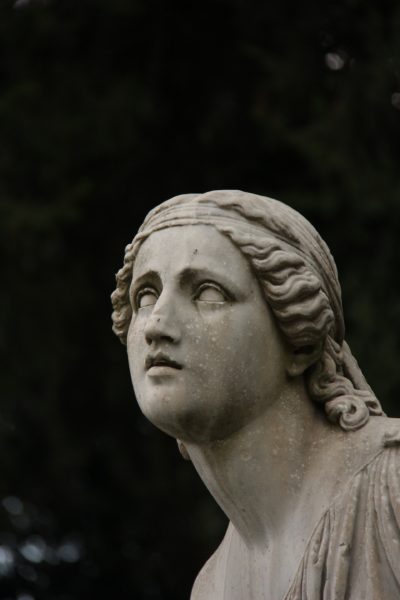
Photo by Antônia Felipe on Unsplash
They will all say I am overreacting, I thought, as he is my boyfriend. They will not take me seriously. They will ask if I was drinking that night, and how much I drank. They will ask what I was wearing, and if it was revealing. They will ask if I seduced him, if I secretly wanted it. They will ask me if I pushed him away, asking for proof on my body that I resisted him.
What other solutions did I have? To prosecute my own boyfriend? My mother had always mentioned news of girls being sexually harassed or raped in the tunnels or around the dodgy area of Termini, the central train station of Rome, and she had warned me not to stay out too late at night. I always brushed those stories off. I had seen them as her way of her trying to control my freedom, and when things are in the news, it seems like they are not really related to me.
But I knew the infamous reputation of Italian law on rape. Even Mussolini’s granddaughter has commented: “A woman who sees her torturer spared from prison is raped twice.”
A 24-year-old woman was raped last year by three men in Naples train station, a place we went last week, to visit Antonio’s grandmother. That woman’s statement was believed to be unreliable, because of her mental instability, and because the camera footage of the assault didn’t show any resistance from her, it was argued that she had wanted it.
My mother had been outraged by the court statement when the news came on TV. She had cursed how regressive the Italian concept of sexual assault has been. I vividly remember her bringing up Emperor Constantine, who had categorised rape victims as “willing” and “unwilling”. The former were burned alive and the latter were blamed for not resisting harder. 1700 years later, it seemed to her that no real progress had been made to change the concept of victim blaming.
Read More: When rape sparks protest: Turning points in India’s history, or history repeating itself?
The TV news reporter had compared that case with an older one, in which the perpetrator was only convicted because there were obvious signs of assault. And by obvious signs, I mean an acid attack which had severely disfigured her face. The victim had later become our member of the parliament, Lucia Annibali.
Our whole family was infuriated that resistance was required to make a victim’s story believable, but when the news report was over, my mother turned around and said to me: “Having said all of that, remember to resist as much as you can if you are being raped.”
After that, it seemed to me even more pointless to ever acknowledge that what happened to me was non-consensual. Unlike other more progressive countries, where the lack of a ‘yes’ is taken as an implied ‘no’, and where the perpetrator assumes the responsibility for ascertaining consent, there is no clear definition of consent in Italian law.
I am jealous of girls living in those countries that are not so biased towards perpetrators. I am envious that their stories would be taken more seriously and would find sympathetic listeners. I am resentful that the law is on their side and that they could seek justice. I am bitter that I am not one of them.
I don’t even know if I was actually raped! Or was I just making a big deal out of nothing? I am guilty that I am even allowing myself to think that what happened to me could be rape, because that would mean I could be misunderstanding Antonio – Antonio, who always tries to protect me.
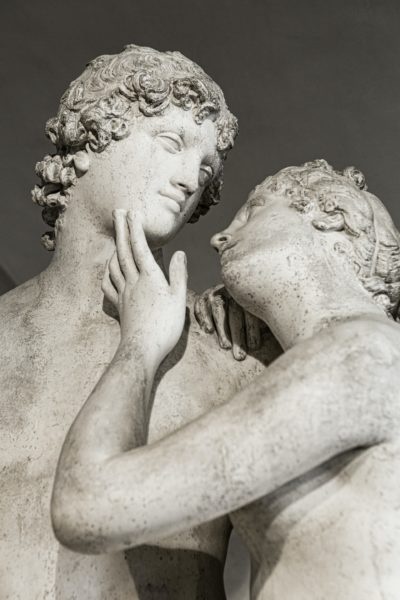
Photo by Wilhelm Gunkel on Unsplash
“This tragic event happened during a party hosted by the king of Ancient Rome, Romulus, when he allowed his men to rape the women of the whole tribe of Sabine, because they wanted to increase their population, and women from that region were known to be extremely beautiful… Afterwards, when the husbands and the fathers of those women sought revenge, the women actually defended their rapists’ actions as acts of love and passion, and eventually the men from Sabine had to marry those women off to the Romans…”
I could not think of a more despairing scenario than rape, but here it was: forcing the victim to marry her perpetrator! The tour guide continued his historical tale, and Antonio joked: “Ahh, thank god it doesn’t happen in Rome anymore!”
I looked at him in shock. His joke woke me up.
I am no different to those girls. I am still defending my perpetrator, convincing myself that his actions were acts of love and passion.
Like the nicely painted walls of that old, worn-out, elaborately furnished room in which he took my dignity, I needed to stop wrapping rotten things in nice decorations. The fairy lights weren’t as romantic as I remembered them to be. The warm filter that I had placed over my memories was just a mechanism for me to cope with what had happened to me.
Seeing my indifferent reaction to his joke, Antonio attempted to put his hands on my shoulders to check if I was ok. I instinctively flinched at the skin contact. I was suddenly overwhelmed by a wave of horror, as if I had never been touched by him before. It shouldn’t matter whether I had been touched by him before or not, and it definitely shouldn’t matter if he is my boyfriend or not… If I hadn’t consented to it, he could not do what he did.
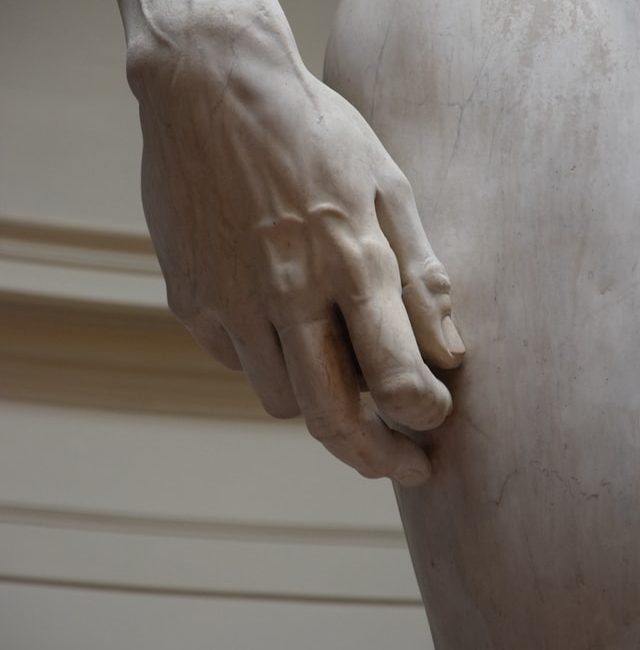
Photo by Taylor Smith on Unsplash
That person whose hand I had sought to hold, in whom I had once sought protection, had become the person who hurt me the most.
The person who wants me to be safe the most was actually the person who was the biggest danger to me.
I just didn’t realise this the whole time. And neither did he.
I looked at that statue again. That young maiden is lucky, I thought, that there was an older man at the bottom trying to save her. At least for her, someone would believe that she was raped. Now, as I looked at that girl, she still looked very frightened to me, but I also noticed that her hand was reaching for the sky. Hopefully, she could get out of the young man’s arms with the help of the older man.
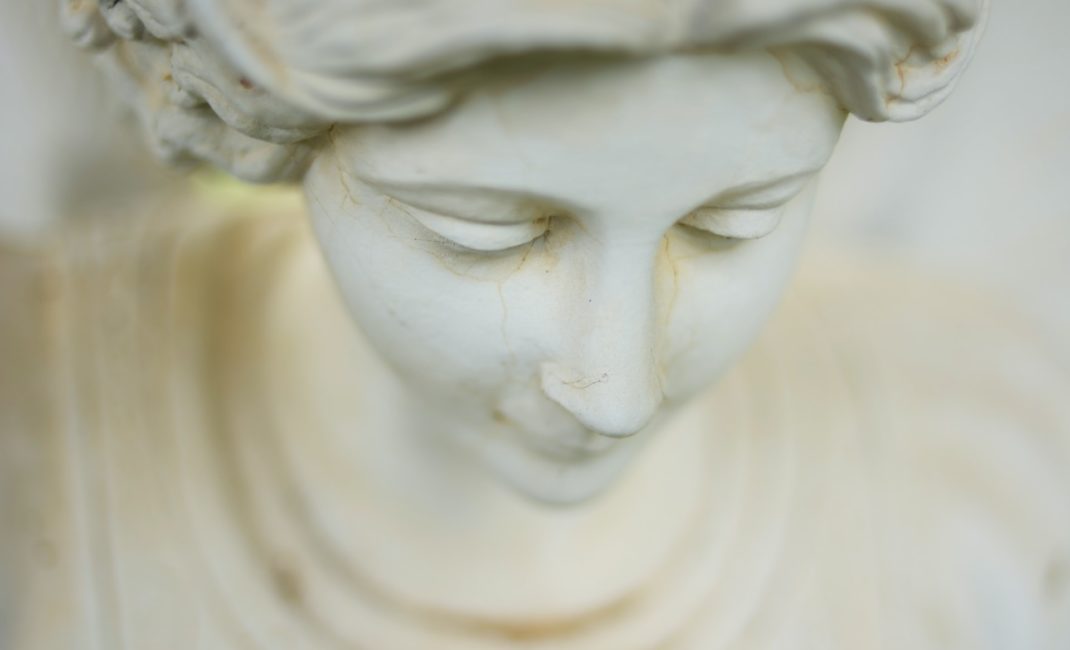
Photo by Chithira Jose on Unsplash
As for the young man, his persistence repulsed me immensely, now that I realised what he was trying to do. I only wish that he understood the severity of his actions and did not seek to justify his perseverance as an act of love or passion. I couldn’t see the beginning of a love story anymore.
It was rape. And only rape.
Read more:
- Justice, women and the law
- The Maid of Honour Violence
- 9 inspiring stories from women fighting injustice around the world
Featured image by Ali Nuredini on Unsplash
If you have been affected by any of the issues raised in this story, Rape Crisis offers a range of support and resources.
This piece of creative fiction was originally written as a response to one of the themes of the Writing Human Rights module at the University of Warwick. The module confronts human rights themes and develops creative responses to them in writing. Students have free rein to choose the topic and style of their stories. They have written pieces of journalism, short fictional stories, sci-fi, screenplays, comment pieces, podcast episodes and TED talks. We have worked with students to develop the best examples of their writing and publish them on Lacuna (find them here). Sylvie Shiu’s story is a response to the #MeToo section of the module. Sylvie is a law graduate on the LLB with Year Abroad in English. Her two-year experience in Rome inspired her to write this story. She is now taking a barrister course and hopes to continue to advocate for survivors of sexual assault.
